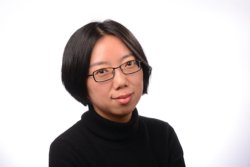For more than two decades, blended learning (BL) has been one of the most rapidly growing trends in higher education, because of its perceived benefits of flexibility, personalization and pedagogical richness. In preparing for education in the post-COVID-19 era, BL, combing the conveniences of online education and still including face-to-face contact, has attracted renewed interest among universities, says LinLin Pei. She is an educational consultant and PhD candidate with 4TU.CEE at the University of Twente and working on a model to help instructors develop blended learning.
Quality barriers
 “Despite teachers' sincere intentions to further advance post-pandemic BL, maintaining social engagement with students while motivating them to actively participate in learning are significant challenges for teachers working in a BL environment”, Pei points out. Poor social interactions between students and teachers establish barriers against the quality of BL, culminating in students' feelings of loneliness, isolation, and motivation loss.
“Despite teachers' sincere intentions to further advance post-pandemic BL, maintaining social engagement with students while motivating them to actively participate in learning are significant challenges for teachers working in a BL environment”, Pei points out. Poor social interactions between students and teachers establish barriers against the quality of BL, culminating in students' feelings of loneliness, isolation, and motivation loss.
Learning Communities
These issues prove that learning is social in nature and knowledge cannot be constructed in isolation. To alleviate feelings of loneliness among students, and increase their learning outcomes, previous studies attempted to explore the potential of a learning community for BL. A learning community is defined as a formally constituted group of individuals who share common academic goals and work collaboratively. Emerging evidence suggests a significant connection between learning communities and student satisfaction, knowledge retention, learning outcomes as well as student’s well-being.
Strong community levels in a blended learning environment are associated with teacher-facilitated activities, which need to be carefully designed by teachers to explicitly integrate community components into the teaching and learning process. This process demands teachers to adapt their roles to develop new pedagogical knowledge and teaching practices in a blended environment, where and when appropriate. “Teachers need support to develop competences and skills that many don’t have yet”, explains Pei.
How to develop a learning community?
Although extensive research emphasizes the importance of a learning community in blended learning, it is unclear from the teacher's perspective, how a learning community can be best developed with practical guidelines and steps. Thus, the present study aims to develop a professional development intervention preparing university teachers to cultivate a learning community in a blended environment.
With this study Pei aims to make the following contributions: first, it will fill a gap in literature by enhancing our understanding of the teacher’s role in a blended learning community. Second, this study will develop a professional development intervention to prepare teachers in adapting their roles in this transformative educational process. Finally, the impact of COVID-19 will probably extend well beyond tackling the current crisis. “At this critical moment, we hope this study can support Higher Education Institutes in preparing and reshaping universities for the post-pandemic era.” Preliminary results of the study are expected in 2022.
More information
LinLin Pei can be contacted for additional background information at: l.pei@utwente.nl.



